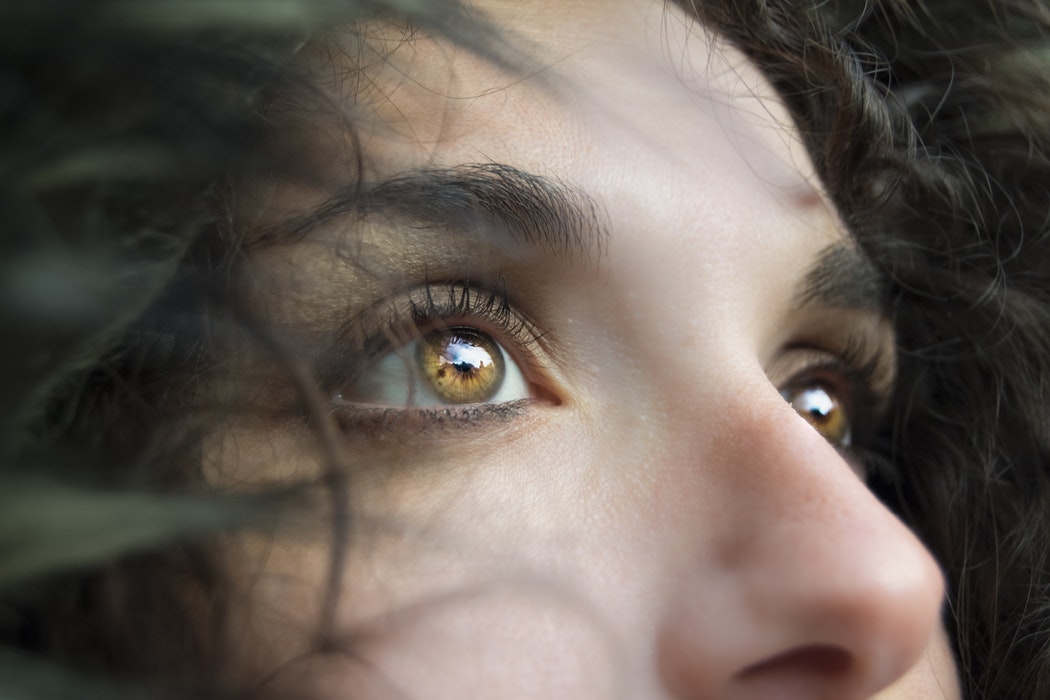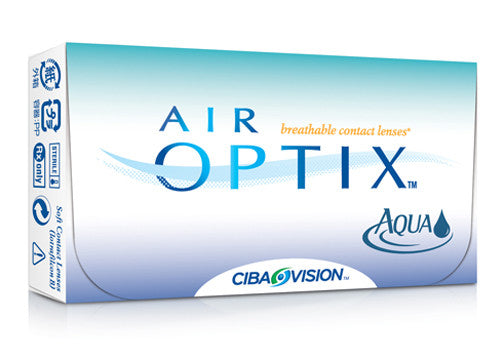
Psssst. Hey, you, it’s your contact lenses. We need to talk. No, we’re not breaking up with you but we want to make sure we’re on the same page here. We’re pretty low maintenance, especially the dailies among us, so sometimes you might forget we’re even here. We don’t hold that against you. In fact, it’s a sign we’re doing a stellar job. However, every now and then, we need a little attention. Not sure how to make us happy? We’ll just spell it out for you. Here are some of the sweet nothings we’ve been trying to whisper in your ear:
“Please, clean us.”
The key to having a great relationship with your contact lenses and protecting your vision is keeping them clean. That means using a multipurpose solution that cleans and disinfects. Don’t just pick up regular saline solution and assume it will do the trick.
It may wash away debris but it won’t zap harmful bacteria. It’s meant for rinsing and storing contacts when you’re using another method of disinfecting, like a heat or UV system. Anyway, before popping your lenses in, wash your hands with oil- and fragrance-free soap and dry them with a lint-free cloth.
Then, place one of your contacts in your palm, drop some multipurpose solution on it, gently rub it for a few seconds and rinse it thoroughly with more solution. When it’s in your eye, move on to the next one.
Experts suggest rubbing and rinsing lenses, even when using a no-rub solution, for maximum cleanliness. For those who use hydrogen peroxide solution, don’t put your contacts directly into your eye without neutralizing them first.
At the end of the day, wash your hands again and fill up your clean, dry contact lens case with multipurpose solution. Then, remove each contact and clean them one at a time the same way you did when putting them in. Cleaning before storing them cuts down on protein buildup and oily residue.
Pro tip: Always put in and take out the same contact lens first to avoid mixing up left and right.
Let your lenses disinfect overnight or at least for as long as suggested by the manufacturer, which is typically a minimum of four hours and as much as eight hours. If all of this sounds like a lot of work, you can skip the rigmarole by wearing daily contact lenses. You get to toss them at night and start with a fresh pair in the morning.
If you lose a contact lens during the day or get something in your eye and need to clean it off, never, ever, ever put it in your mouth or use spit or water to rinse it.
Your mouth and spit are full of bacteria and you could give yourself an infection and water, well, we’ll get to that shortly. Carrying a travel-sized bottle of multipurpose solution, a case and back-up contacts is always a good idea.
“Don’t disrupt our schedule.”
Contact lenses are a little like toddlers. Go off schedule and they wreak havoc. Well, maybe not so much havoc, but discomfort and a decrease in visual acuity for sure. Your contact lens replacement schedule (typically monthly, weekly, bi-weekly or daily) will depend on the type of lenses you use and their materials.
However, your eye care professional may suggest a certain schedule as well to suit your lifestyle and the health of your eyes. Don’t try to save a buck by extending their wear past what’s recommended.
If it’s a matter of not having the time or energy to go to your eye doctor and get a new box, order them online and have them shipped to your door (we know just the online store for you). A multipurpose solution can only fend off protein deposits and residue for so long. Eventually, your contacts will get dry, irritate your eyes and you won’t be able to see clearly with them.
The shorter the wear schedule, the fresher they stay. So, when possible, try weekly or daily contacts and change them as directed for improved comfort and crisper vision.
“Ready for bed? Remember to take us out.”
Your eyes need to breathe and your contacts need to relax and unwind in their nightly bath of solution to disinfect. No matter how tired you are, take a second to remove your contact lenses before nodding off.
When you sleep in contacts, you wake up with eyes that are drier than the Sahara, you have diminished vision and you’re at a higher risk for developing a corneal infection. There are extended-wear contact lenses that are FDA approved for up to 30 days of continuous use.
Obviously, not having to take them out at night makes them extremely convenient. However, they’re not for everyone and their safety is still up for debate. The FDA recommends removing them at least once a week throughout the wear cycle and disinfecting them.
Unfortunately, studies have shown that sleeping in these soft, hydrogel, extended-wear lenses, even when taking them out weekly, still increases the likelihood of developing a damaging infection, such as ulcerative keratitis.
While they are a much better option than regular, old contacts for overnight use, it’s still advisable to give your eyes a break when you can and follow usage instructions exactly.
“Don’t even think about putting us in a grimy case.”
You fill up your contact lens case with multipurpose solution every night, empty it in the morning and then shut the case until it’s time to put your lenses in it again. That means it’s staying perpetually wet and to make matters worse, most people keep their case in their bathroom.
Moisture on moisture on moisture. You know who’s a big fan of damp places? Bacteria. Just as you care for your lenses, care for your case. Opt for a smooth contact lens case, which doesn’t have grooves for germs to nestle into, and replace it every three months. When you put in your contacts, dump out the old solution and use fresh solution to rinse out your case.
Wash and dry your hands and wipe the inside of it with a clean finger. Rinse it out one more time with solution and then wipe it with a clean tissue. Let the case air dry face down on another clean tissue. When it’s completely dry, screw the caps back on and tuck it away.
"We Don't Mix Well With Water"
Considering contacts are either soaked in tears and eyeball juices or solution, you’d think they’d love water. However, water and contact lenses are a dangerous combination. Water isn’t sterile (not even bottled or distilled water) and it can contain microorganisms that may lead to irritation, serious infection, corneal ulcers and other issues.
You shouldn’t just avoid storing or cleaning lenses in water, you should also be careful about it getting into your eyes when swimming, doing watersports, while in hot tubs or even when showering. Contacts are porous and soak up the moisture, including any bacteria and nasties that are in it.
Exposing contacts to water is associated with Acanthamoeba keratitis, an infection that occurs when amoebae get into the cornea. There’s no cure or treatment and it can result in blindness.
While taking a quick dip in a chlorinated pool or the ocean with contacts in is slightly safer than freshwater, at a minimum, you’ll end up with dry, red, uncomfortable eyes.
Your best bet? Don’t wear your contact lenses when swimming and, if you do, remove them right away and let them disinfect for 24 hours or throw them out and replace them with a new pair.
Read More: WEARING CONTACT LENSES AND ALLERGIES
“Hands off – or at least wash them before touching us.”
Once your contact lenses are in your eyes, let them be. It can be hard when you have allergies or you’ve been staring at a computer screen all day but rubbing your eyes will make matters worse. You run the risk of losing or damaging a contact and spreading bacteria, germs and allergens, leading to an infection, an illness or a worsening of allergy symptoms.
Additionally, if you have even a tiny speck of dust or debris in your eye, rubbing can cause a corneal abrasion, which is extremely painful and sometimes results in damage to your vision. If you absolutely have to touch your eye for some reason or when you’re putting your contacts in and taking them out, wash your hands with a fragrance-free, oil-free soap, rinse them really well and dry them with a lint-free cloth.
“We love a good trip to the eye doctor and we’ll be totally fine if you want to see other contacts.”
Getting checked out by an eye care professional on a regular basis is essential for healthy vision. Aim for a yearly visit. An optometrist or ophthalmologist will conduct an exam to assess your vision and the condition of your eyes.
If they spot any issues, they can step in early, making treatment easier and less invasive. They’ll also fit you for contact lenses and provide you with a prescription so you know when you order lenses, they’ll be comfy, suit your eyeballs and perfect your eyesight.
Sometimes, finding the perfect contact lenses takes a bit of trial and error. Your doctor can help you with that. If things just aren’t working out, it doesn’t mean you have to settle or give up lenses altogether. Talk it over and see if a different brand or type is better for you.
“Help us to help you see clearly.”
Contact lenses are miraculous little vision correctors. However, if they’re covered in a film of aerosol, lotion, makeup or whatever else you’re exposing them to willy nilly, they can’t do their thing. They also have a hard time reaching their full potential when your eyes are insanely dry or fatigued. We all need a little help from our buddies sometimes and contact lenses are no exception.
In this instance, you’re the buddy, so do your part by following these tips:
- Blink. You might think you have the whole blinking thing down but you’d be surprised. When you work at a computer or scroll through your Instagram feed for hours on end, research shows you don’t blink as much as you should. Make a conscious effort to blink fully and frequently. It will lubricate your eyes and keep contacts clean.
- Speaking of computers and smartphones, if you stare at a screen for work or fun, take breaks throughout the day both by getting up and moving around and by following the 20-20-20 rule (every 20 minutes, look at an object 20 feet away for 20 seconds). Also, match the brightness of your screen to the brightness of the room. Both of these tricks will reduce the blurry vision, dryness, fatigue and irritation associated with digital eyestrain.
- Use rewetting drops as directed. It’s hard to see correctly out of dry, tired eyes.
- Whenever you spray air freshener, hairspray, dry shampoo or any form of aerosol, shut your eyes tightly. This is probably a smart move for everyone but for those of us wearing contacts, the substances will leave a film on them that’s extremely hard to get off and you’ll feel like you’re looking out of a dirty window.
- Ugh. Oil. Wait to slather on lotion until after you put in your contacts, wash your hands with oil-free soap before handling your lenses and don’t use oily products in your eye area. A greasy layer on your contacts will cloud your vision.
- Keep makeup from working its way under your contacts (ouch) or getting stuck on your lenses and decreasing your ability to see clearly. Do this by putting your contacts in prior to eye makeup application. Take them out before removing your makeup. Also, invest in some quality eyelid primer if you’ll be using powder eye shadow so it doesn’t migrate or, even better, go with a cream-based formula. Clean your brushes and applicators, use waterproof mascara and eyeliner, steer clear of fake lashes and choose hypoallergenic products. If all of that sounds like way too much to abide by, switch to dailies.
Read More: HOW DOES UV PROTECTION WORK WITH CONTACT LENSES?
“Protect us (and your eyeballs).”
If you play sports where fingers and elbows are flying, you might want to consider protective eyewear (e.g., sports goggles, helmets, etc.). A contact lens falling out in the middle of a game isn’t going to help you win.
If goggles aren’t in the cards, try daily contacts and carry an extra pair with you. For activities that involve debris zooming through the air, such as skiing, carpentry, working on your truck or anything of the sort, it’s extremely important to use goggles, safety glasses or whatever the situation requires.
Yet, it’s not just threats you can see and feel that you need to be wary of. You should also protect your eyes from UV exposure. Certain contact lenses have built-in UV protection but they only cover your cornea and the technology hasn’t been perfected to the point where they block 100% of UV rays.
Pair your lenses with sunglasses when you’re outside or driving, even on cloudy days. As a bonus, sunglasses are also a good and super cool looking way to deflect dust or things that are whipping around in the wind.
“We’re waiting for you at Fresh Lens!”
Your perfect contacts await. Check out our huge selection of Canadian contact lenses online and browse all of the best brands without leaving your living room. They may not really whisper sweet nothings but if you give your contacts the care they deserve, you can bask in awesome vision and keep your eyes happy and healthy.

































